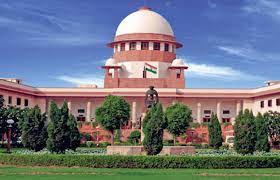


The Supreme Court in the case BLS Infrastructure Limited vs Rajwant Singh observed and has stated wherein the complainant had already been examined as a witness in the case and it would not be appropriate for the Court to pass an order of acquittal which being merely on non-appearance of the complainant.
In the present case, the complainant filed eight complaints against the accused under Section 138 of the Negotiable Instruments Act, wherein the court recorded the statements of the complainants and the complainant’s evidence was being closed with a direction to list the matter for recording of defence evidence as also for the consideration of application as stated under Section 311 of the Code of Criminal Procedure, 1973. Lately, the criminal complaint has been dismissed by the Magistrate for non-appearance of the complainant. The said order of Magistrate was upheld by the Delhi High Court.
It was also contended before the Apex Court that as the statement of the complainant had been recorded and the complainant was also subjected to cross-examination, there existed admissible evidence on record in support of the case of the said complainant.
The court also referred to the case Associated Cement Co. Ltd. v. Keshvanand.
The bench headed by Justice Sudhanshu Dhulia and Justice Manoj Misra stated that where it has been held that the complainant had already been examined as a witness in the case, it would not be appropriate for the said Court for passing an order of acquittal which being merely on the non-appearance of the complainant.
However, it has been noted by the bench that the trial court as well as the High Court did not take into consideration that the complainant’s cross-examination which had been over in Complaint Cases and no cross-examination was being ought in any other case.
Accordingly, the court allowed the appeal.